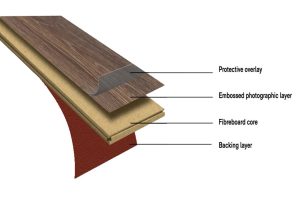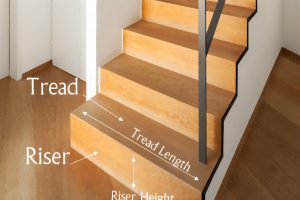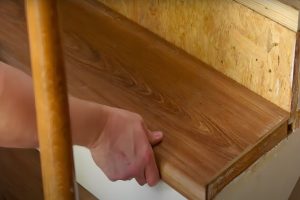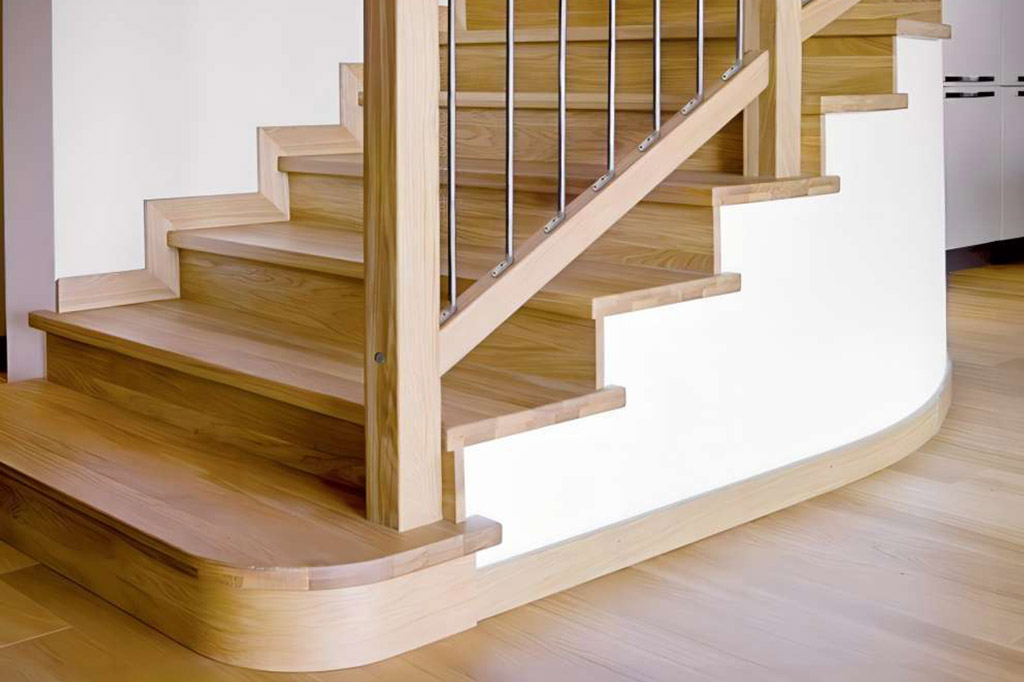Installing engineered wood on stairs can significantly enhance the visual appeal of a home while offering durability and ease of maintenance. However, in this process, we will face a series of costs due to different installation factors and conditions, including material quality, installation complexity, and regional labor costs.
Today we will provide a comprehensive overview of the costs associated with installing solid hardwood stairs, including material and labor costs, and other considerations to give you tips for effective budgeting.

Table of Contents
ToggleWhy Choose Engineered Hardwood
Because the special structure of engineered hardwood flooring makes it less susceptible to deformation and shrinkage than solid wood, it is an ideal choice for climate fluctuations and high-traffic areas such as stairs. Before delving into the cost, it’s crucial to understand the benefits of this material, including its durability, ease of installation, and aesthetic flexibility.

Cost Breakdown
- Materials: The cost of engineered wood flooring for stairs can range from $3 to $10 per square foot, depending largely on the wood species and the thickness of the veneer. Three of these wood species, oak, maple, and hickory, are popular wood species choices due to their strong durability and unique and attractive visual qualities. Additionally, the cost of materials must include each stair tread (the horizontal section you step on) and riser (the vertical segment between treads).
- Installation Costs: Labor costs for installing engineered hardwood on stairs are higher than those for flat surfaces due to the precision required in cutting and fitting the pieces. The national average for labor costs typically ranges from $40 to $75 per hour, with a set of stairs taking between 8 to 12 hours to complete. This puts labor costs at approximately $320 to $900 for the entire staircase.
- Type of Staircase: The design of the staircase affects the total cost significantly. Straight staircases are generally less expensive to outfit with engineered wood compared to spiral or curved staircases, which require additional cutting and customization.
- Additional Components: Stair installation might require additional components such as stair nosing, which helps to create a seamless transition between treads and risers. The nosing can also add to the overall cost, typically ranging from $10 to $30 per linear foot.
- Removal and Disposal of Previous Flooring: If the existing stairs are covered with carpet, tile, or old wood, there will be additional costs for removal and disposal. This can range from $100 to $200 depending on the complexity and the local disposal fees.
- Finishing Costs: Post-installation, the stairs may need finishing touches such as staining, sealing, or varnishing, especially if the engineered wood is unfinished. These costs can vary but generally range from $2 to $5 per square foot.

Total Estimated Costs
The total cost of installing engineered wood flooring on a standard staircase (approximately 12-14 steps) typically ranges from $1,000 to $3,000 or more, depending on the size of the staircase, the quality of the material, and regional labor cost differences. This estimate includes materials, labor, add-ons, and finishes.
Factors Affecting Cost
- Stair Design: The more complex the stairs (e.g., those with landings, curves, or multiple levels), the higher the installation costs due to increased labor time and materials.
- Regional Labor Price Differences: Flooring installer labor costs may vary at different charge levels depending on your location. For example, compared with rural areas, labor costs in urban areas will be relatively higher.
- Quality of Materials: Higher-end engineered woods with thicker veneers and exotic wood species will cost more but also offer better durability and a more striking appearance.
Budgeting Tips
- Get Multiple Quotes: Always obtain quotes from several contractors to compare prices and understand the scope of work.
- Consider the Long-Term Benefits: Investing in high-quality materials can reduce long-term maintenance costs, despite the higher initial outlay.
- Prepare for Extras: Set aside an additional 10-20% of your budget for unexpected costs or decisions to upgrade materials during the installation process.
Conclusion
Choosing engineered wood flooring for stairs is an excellent investment that can add to the beauty and value of a home. While the initial cost can be high, the long-lasting durability and timeless look of wood make it a cost-effective option over time.
So it is essential to take into account all the discussed factors and speak with a professional to obtain an accurate estimate tailored to your specific needs and preferences. By knowing the detailed costs involved, you can effectively plan to ensure a successful staircase remodel.

